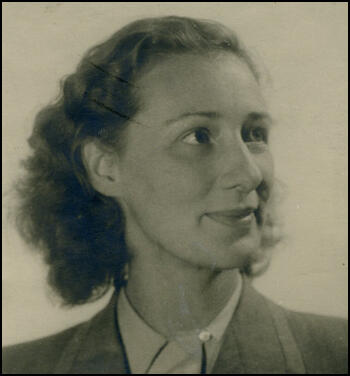On this day on 21st July
On this day in 1811 the cartoonist James Gillray attempts to kill himself by throwing himself out of attic window above Humphrey's shop in St James's Street. According to the The Examiner: "On Wednesday afternoon Mr. Gillray the caricaturist who resides at Mrs Humphrey's, the caricature shop in St. James's Street, attempted to throw himself out of the attic story. There being iron bars his head got jammed and being perceived by one of the chairmen who attends at White's the unfortunate man was extricated."
Gillray had been suffering from depression for some time. Gillray's eyesight began to fail in 1806. He began wearing spectacles but they were unsatisfactory. Unable to work to his previous high standards, James Gillray started drinking heavily. He produced his last print in September 1809.
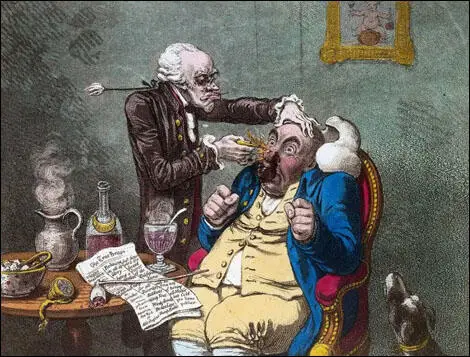
On this day in 1884 mass protests against the House of Lords because of its unwillingness to pass the 1884 Reform Act . The London Trades Council quickly organized a mass demonstration in Hyde Parkand an estimated 30,000 people marched through the city to merge with at least that many already assembled in the park. Thorold Rogers, compared the House of Lords to "Sodom and Gomorrah" and Joseph Chamberlain told the crowd: "We will never, never, never be the only race in the civilized world subservient to the insolent pretensions of a hereditary caste".
Queen Victoria thought that the Lords had every right to reject the bill and she told William Gladstone that they represented "the true feeling of the country" better than the House of Commons. Gladstone told his private secretary, Edward Walter Hamilton, that if the Queen had her way she would abolish the Commons. Over the next two months the Queen wrote sixteen letters to Gladstone complaining about speeches made by left-wing Liberal MPs.
In August 1884, William Gladstone sent a long and threatening memorandum to the Queen: "The House of Lords has for a long period been the habitual and vigilant enemy of every Liberal Government... It cannot be supposed that to any Liberal this is a satisfactory subject of contemplation. Nevertheless some Liberals, of whom I am one, would rather choose to bear all this for the future as it has been borne in the past, than raise the question of an organic reform of the House of Lords... I wish (an hereditary House of Lords) to continue, for the avoidance of greater evils... Further; organic change of this kind in the House of Lords may strip and lay bare, and in laying bare may weaken, the foundations even of the Throne." (116)
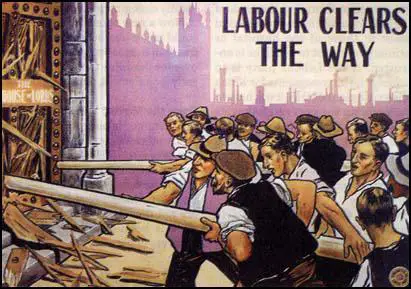
On this day in 1920 French journalist Jean Daniel (Jean Daniel Bensaid) was born in Blida, Algeria. His father, Jules Bensaïd, was a flour miller. As a young man he moved to France where he studied philosophy at the Sorbonne. In 1940 he enlisted in the Free French Forces and during the Second World War he fought in Normandy and Alsace.
Daniel "a self-described Jewish humanist and non-Communist leftist" was a friend and colleague of the philosopher-writers Jean-Paul Sartre and Albert Camus. He was a friend of David Ben-Gurion, the Zionist who became Israel’s founding prime minister in 1948. However, he also defended Palestinian and Arab rights and was a strong critic of Israel.
In 1947, Daniel founded the literary magazine Caliban, and was editor until 1951. He published his first novel, L'Erreur ou la Seconde vie de Sylvain Regard, with an introduction by Camus in 1953. The following year he began working for the left-wing weekly news magazine L’ Express, which opposed French colonialism in Indochina and Algeria. "As a correspondent in Algiers, Mr. Daniel supported Algeria’s war of independence from French colonialism. But he also deplored torture and atrocities on both sides, which continued for decades after the brutal six-year war formally ended in independence for Algeria in 1962."
William Attwood, was a journalist who held progressive political opinions. During the 1960 presidential campaign, John F. Kennedy employed Attwood as a speech writer. In 1961, Kennedy appointed him as ambassador to Guinea and in 1963 served with the U.S. delegation to the United Nations. In this post Attwood was the leading advocate inside the Kennedy Administration for talking to Fidel Castro about the potential for improving relations. He was supported by McGeorge Bundy, who suggested to Kennedy and the National Security Council that there should be a "gradual development of some form of accommodation with Castro".
In April 1963 Lisa Howard arrived in Cuba to make a documentary on the country. In an interview with Howard, Castro agreed that a rapprochement with Washington was desirable. On her return Howard met with the Central Intelligence Agency. Deputy Director Richard Helms reported to President Kennedy on Howard's view that "Fidel Castro is looking for a way to reach a rapprochement with the United States." After detailing her observations about Castro's political power, disagreements with his colleagues and Soviet troops in Cuba, the memo concluded that "Howard definitely wants to impress the U.S. Government with two facts: Castro is ready to discuss rapprochement and she herself is ready to discuss it with him if asked to do so by the US Government."
CIA Director John McCone was strongly opposed to Howard being involved with these negotiations with Fidel Castro and the Cuban government. He argued that it might "leak and compromise a number of CIA operations against Castro". According to James W. Douglas, the author of JFK and the Unspeakable: Why He Died and Why It Matters (2008) "the CIA wanted to block the door that could be seen opening through Howard's interview". In a memorandum to McGeorge Bundy, McCone commented that the "Lisa Howard report be handled in the most limited and sensitive manner," and "that no active steps be taken on the rapprochement matter at this time."
Arthur Schlesinger explained to Anthony Summers in 1978 why the CIA did not want President Kennedy to negotiate with Fidel Castro during the summer of 1963. He pointed out that the head of the CIA's Cuba unit, Desmond FitzGerald, masquerading as an American Senator, had told Rolando Cubela that a coup against Castro would have the full backing of the United States Government: "The CIA was reviving the assassination plots at the very time President Kennedy was considering the possibility of normalization of relations with Cuba - an extraordinary action. If it was not total incompetence - which in the case of the CIA cannot be excluded - it was a studied attempt to subvert national policy."
Lisa Howard arranged a meeting between William Attwood and Carlos Lechuga, Cuba's representative to the United Nations. "On September 23, I (Attwood) met Dr. Lechuga at Miss Howard’s apartment. She has been on good terms with Lechuga since her visit with Castro and invited him for a drink to meet some friends who had also been to Cuba. I was just one of those friends. In the course of our conversation, which started with recollections of my own talks with Castro in 1959, I mentioned having read Miss Howard’s article. Lechuga hinted that Castro was indeed in a mood to talk. I told him that in my present position, I would need official authorization to make such a trip, and did not know if it would be forthcoming. However, I said an exchange of views might well be useful and that I would find out and let him know."
Attwood now decided to use his an old friend, Jean Daniel, as a go-between. Attwood had lunch with Daniel on 3rd October, and told him about his talks with Lechuga. Attwood asked Ben Bradlee to arrange a meeting between Daniel and the president. This took place on 24th October. Kennedy blamed the pro-Batista policy in the fifties for "economic colonization, humiliation and exploitation" and added, "We'll have to pay for those sins." Kennedy told Daniel: "The continuation of our economic blockade depends on his continuation of subversive activities." Daniel wrote later: "I could see plainly that John Kennedy had doubts (about the government's policy on Cuba) and was seeking a way out."
At the same time as Attwood was attempting to organize talks between Kennedy and Castro, the CIA was continuing with the AM/WORLD project. On 29th October, 1963, Desmond FitzGerald, the CIA official who had replaced William King Harvey as the agency's chief Cuba man, traveled to Paris to meet Rolando Cubela (code name AM/LASH). FitzGerald, posing as a U.S. Senator representing Attorney General Robert Kennedy, gave Cubela a poison pen device from the CIA's Operation Division of the Office of Medical Services: "a ball-point rigged with a hypodermic needle... designed to be so fine that the victim would not notice its insertion."
Meanwhile, Castro's personal aide, Major René Vallejo, had become involved in the proposed negotiations. He phoned Lisa Howard on 29th October, and assured her that Castro was as eager as he had been during her visit in April to improve relations with the United States, but it was impossible for Castro to leave Cuba at that time to go to the UN or elsewhere for talks with a Kennedy representative. Howard replied that there was now a U.S. official authorized to listen to Castro. On 31st October Vallejo phoned Howard again saying "Castro would very much like to talk to the U.S. official anytime and appreciated the importance of discretion to all concerned." James W. Douglas has pointed out the phrase "to all concerned" was significant. "At this point Castro, like Kennedy and Khrushchev, was circumventing his own more bellicose government in order to talk with the enemy. Castro, too, was struggling to transcend his Cold War ideology for the sake of peace. Like Kennedy and Khrushchev, he had to walk softly."
On 12th November, 1963, McGeorge Bundy recorded: "I talked this afternoon with William Attwood and told him that at the President's instruction I was conveying this message orally and not by cable... He (Kennedy) would prefer to begin with a visit by Vallego to the U.S. where Attwood would be glad to see him and to listen to any messages he might bring from Castro. In particular we would be interested in knowing whether there was any prospect of important modification in those parts of Castro's policy which are flatly unacceptable to us: namely, the points in Ambassador Stevenson's recent speech of which the central elements are (i) submission to external Communist influence, and (ii) a determined campaign of subversion directed at the rest of the Hemisphere."
During the next few days Attwood tried to make contact with Vallego: "Finally, on the eighteenth, I spoke to him at 2 a.m. and told him the White House position. He said Castro would send instructions to Lechuga to discuss an agenda with me. He spoke fluent English and called me 'sir.' (Many years later, Castro told me he was listening in on our conversation.) I reported to Bundy in the morning. He said once an agenda had been agreed upon, the president would want to see me and decide what to say to Castro. He said the president would be making a brief trip to Dallas but otherwise planned to be in Washington."
On 18th November, 1963, Kennedy gave a speech where he covered the situation in Cuba and appeared to be a message to Castro. He said that "a small band of conspirators" had made "Cuba a victim of foreign imperialism, an instrument of the policy of others, a weapon in an effort dictated by external powers to subvert the other American Republics. This, and this alone, divides us. As long as this is true, nothing is possible. Without it, everything is possible. Once this barrier is removed, we will be ready and anxious to work with the Cuban people in pursuit of those progressive goals which a few short years ago stirred their hopes and the sympathy of many people throughout the hemisphere."
Jean Daniel arrived in Cuba at the beginning of November. His first attempts to meet with Castro ended in failure. He was told that he was very busy and had no desire to talk to Western journalists. On 19th November, Castro suddenly turned up at Daniel's hotel. He had been informed that Daniel had met Kennedy on 24th October and was eager to learn the details of their conversation. "Castro knew from the secret Attwood-Lechuga meetings that Kennedy was reaching out to him. In fact even as Daniel was trying to see Castro, Castro had been trying to firm up negotiations with Kennedy through Lisa Howard and William Attwood."
Daniel later recalled: "Fidel listened with devouring and passionate interest... Three times he had me repeat certain remarks, particularly those in which Kennedy showed his impatience with the comments attributed to General de Galle, and lastly those in which Kennedy accused Fidel of having almost caused a war fatal to all humanity." Castro told Daniel: "I haven't forgotten that Kennedy centered his electoral campaign against Nixon on the theme of firmness toward Cuba... But I feel that he inherited a difficult situation; I don't think a President of the United States is ever really free, and I believe he now understands the extent to which he has been misled, especially, for example, on Cuban reaction at the time of the attempted Bay of Pigs invasion... I know that for Khrushchev, Kennedy is a man you can talk with. I have gotten this impression from all my conversations with Khrushchev."
On 22nd November, 1963, a "CIA official was meeting with a Cuban agent in Paris and giving him an assassination device for use against Castro". Once again he said he was acting in the name of the Attorney General. (19) William Attwood says there is no evidence that Kennedy knew about this. "And indeed, what motive would either of them have in plotting the death of someone they were planning to communicate with?" (20) James W. Douglas, agrees and has suggested that by hiring Rolando Cubela in the name of "Robert Kennedy to assassinate Castro laid the foundation for the repeated claim that Castro, to preempt the threat on his own life, ordered JFK's murder - and that RFK had therefore triggered his own brother's assassination."
Later that day Daniel met Fidel Castro again in his summer home on Varadero Beach. At 1:30 pm the phone rang. It was President Osvaldo Dorticós Torrado with news that John F. Kennedy had been shot. When he hung up the phone, Castro repeated three times, "This is bad news". Soon afterwards a second phone call said that Kennedy was still alive and could be saved. Castro replied that "if they can, he is already re-elected." Just before 2:00 pm, news came that Kennedy was dead. Castro stood up, looked at Daniel, and said, "Everything is changed. Everything is going to change."
After the assassination of Kennedy the "Attwood-Lechuga tie line'" was put on hold, with White House aides concerned that because it was feared that Lee Harvey Oswald's reported pro-Castro sympathies would make an accommodation more difficult. The back-channel contacts continued under President Lyndon Baines Johnson "but fizzled out in late 1964 as the fall presidential elections approached, despite ongoing efforts by Lisa Howard to keep them alive."
Julian Borger has argued: "Castro saw Kennedy's killing as a setback. He tried to restart a dialogue with the next administration, but Lyndon Johnson was at first too concerned about appearing soft on communism and later too distracted by Vietnam to respond. A later attempt to restore normal relations by President Carter was defeated by a rightwing backlash, and since then any move towards lifting the Cuban trade embargo has been opposed by Cuban exile groups, who wield disproportionate political power from Florida." Peter Kornbluh, a researcher at Washington's National Security Archives who has reviewed all the available evidence, said: "It shows that the whole history of US-Cuban relations might have been quite different if Kennedy had not been assassinated."
In 1964 Jean Daniel left L’ Express with several other journalists, including André Gorz, to establish Le Nouvel Observateur, a weekly news magazine. It was later sold and renamed L’Obs. Under his direction for 50 years, it became France’s leading weekly journal of political, economic and cultural news and commentary. His editorials opposed colonialism and dictatorships, and ranged over politics, literature, theology and philosophy. Daniel also wrote articles for The New Republic and The New York Times.
Daniel was the author of many books on nationalism, communism, religion, the press and other subjects, as well as novels and a well-received 1973 memoir, Le Temps Qui Reste (The Time That Remains). In 1982 he helped establish the Saint-Simon Foundation think-tank. His book The Jewish Prison: A Rebellious Meditation on the State of Judaism (2005) "suggested that prosperous, assimilated Western Jews had been enclosed by three self-imposed ideological walls - the concept of the Chosen People, Holocaust remembrance and support for Israel."
Jean Daniel, died aged 99, on 19th February, 2020.
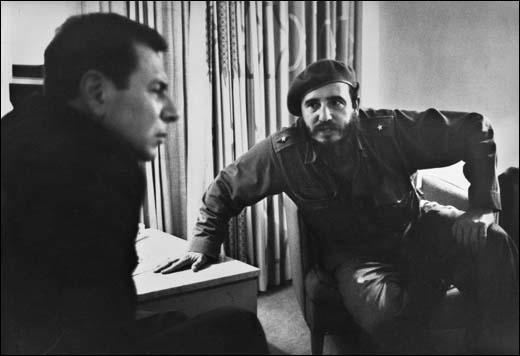
On this day in 1940 J. B. Priestley makes BBC broadcast that results in his sacking. "We cannot go forward and build up this new world order, and this is our war aim, unless we begin to think differently one must stop thinking in terms of property and power and begin thinking in terms of community and creation. Take the change from property to community. Property is the old-fashioned way of thinking of a country as a thing, and a collection of things in that thing, all owned by certain people and constituting property; instead of thinking of a country as the home of a living society with the community itself as the first test."
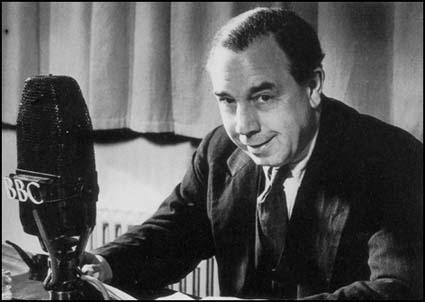
On this day in 1944 Anne Frank writes down her thoughts on the July Plot. "I'm finally getting optimistic. Now, at last, things are going well! They really are! Great News! An assassination attempt has been made on Hitler's life, and for once not by Jewish Communists or British capitalists, but by a German general who's not only a count, but young as well. The Fuhrer owes his life to 'Divine Providence': he escaped, unfortunately, with only a few minor burns and scratches. A number of officers and Generals who were nearby were killed or wounded. The head of the conspiracy has been shot. This is the best proof we've had so far that many officers and generals are fed up with the war and would like to see Hitler sink into a bottomless pit, so they can establish a military dictatorship, make peace with the Allies, rearm themselves and, after a few decades, start a new war. Perhaps Providence is deliberately biding its time getting rid of Hitler, since it's much easier, and cheaper, for the Allies to let the impeccable Germans kill each other off. It's less work for the Russians and British, and it allows them to start rebuilding their own cities that much sooner. But we haven't reached that point yet, and I'd hate to anticipate the glorious event."
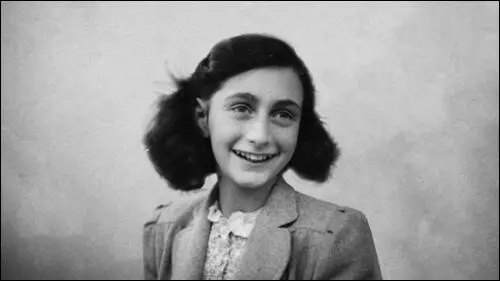
On this day in 1977 model and photographer Lee Miller died in Chiddingly, Sussex.
Lee Miller was born in Ploughkeepsie, New York, on 23rd April, 1907. Her father was an engineer and an amateur photographer and trained her to use the camera at an early age.
Lee moved to New York in 1927 where she worked as a model. Photographed by Edward Steichen, she appeared on the front cover of Vogue. However, determined to become a photographer, she studied at the Arts Students League (1927-29) and opened her own studio in the city in 1932.
After her marriage to the the art historian, Roland Penrose, Miller moved to London where she worked as a photographer for Vogue. Miller also photographed the impact of the Blitz on the British people and this was published in the book Grim Glory.
In 1942 Miller became an official war correspondent for U.S. forces in Europe. She accompanied Allied troops during the liberation of France and photographed the scenes when the Red Army and the US Army joined up for the first time on the Elbe River. Miller was also with the troops when they liberated Buchenwald and Dachau.
At the end of the war Miller returned to England where she continued to work as a freelance journalist and photographer.
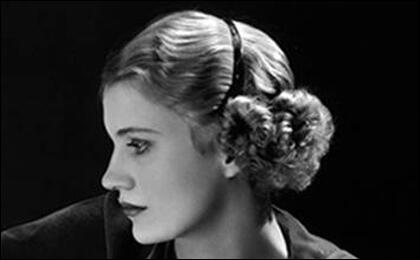
On this day in 1989 the death of French resistance leader Marie-Madeleine Fourcade is announced.
Marie-Madeleine Bridou, the daughter of the executive of a steamship company, was born in Marseilles in 1909. She married in 1929 but despite giving birth to two children the relationship did not last.
Marie-Madeleine went to work for a publishing company in Paris. When Henri-Philippe Petain signed the armistice with Germany in June, 1940, she joined the French Resistance and worked under Georges Loustaunau-Lacau. After Loustaunau-Lacau was arrested in May 1941, Marie-Madeleine took over the running of the unit.
The group concentrated on obtaining intelligence information about the German armed forces and sending it to Britain. The British military authorities were so impressed with the quality of this information they sent her a wireless operator in August, 1941. It turned out this wireless operator was a double agent and Marie-Madeleine and several of her unit were arrested by the Gestapo.
Unlike most of her colleagues Marie-Madeleine managed to escape and was forced into hiding. Unwilling to leave France she sent her two young children to Switzerland: "The escape route was blocked and the frontier bristled with incessant German patrols. Driven from pillar to post the children finally made their way across the frontier alone. At the last staging post the peasants to whom they had been entrusted had simply pointed out the direction in which the barbed wire ran, miles from their farm. My son, a future officer, came through the test with flying colours and saved his sister. He was twelve and she was ten."
Marie-Madeleine Fourcade now concentrated on helping to develop a network for returning shot down airman to Britain. Claude Dansey of MI6 told her: "You've gone on long past the safety limits. According to the law of averages, an underground leader can't last more than six months. You've lasted over two and a half years. It's sheer witchcraft."
In July 1943, she went to England with her latest batch of airmen. She now ran her network from a house in Chelsea. Soon after the D-day landings Marie-Madeleine returned to France. However, she was soon captured by the Gestapo but once again managed to escape and get back to Allied lines.
During the Second World War 438 members of Marie-Madeleine's network were executed. Marie-Madeleine Fourcade wrote about her wartime experiences in the book, Noah's Ark, in 1973.
